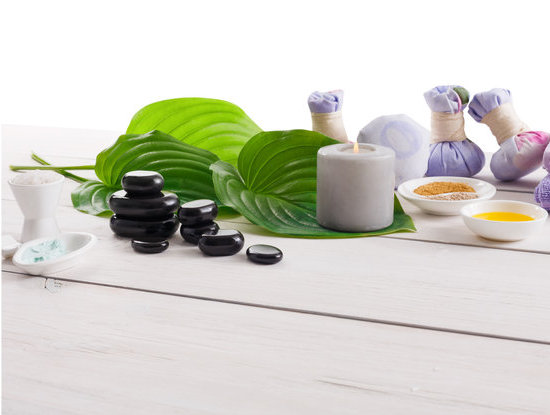Aromatherapy, a centuries-old practice, utilizes essential oils to promote overall well-being and health. Originating from ancient civilizations, aromatherapy has evolved into a holistic healing approach that addresses both physical and mental conditions. What conditions does aromatherapy treat? This question forms the basis of exploring the vast array of issues that can be alleviated through aromatherapy techniques.
Throughout history, various cultures have incorporated aromatherapy into their healing rituals, recognizing the powerful impact of scent on the body and mind. From Egyptian practices to Chinese medicine, essential oils have been used for their therapeutic benefits in treating a range of ailments. Today, aromatherapy continues to be embraced as a natural and effective solution for enhancing health and wellness.
Essential oils play a crucial role in aromatherapy, each possessing unique properties that target specific health concerns. By understanding the science behind how essential oils interact with our bodies and minds, we can harness their potential for healing purposes. Whether it’s reducing stress and anxiety, managing pain, improving skin health, or promoting relaxation, aromatherapy offers a wide range of benefits for various conditions.
History of Aromatherapy
Aromatherapy is not a recent trend but has been used for centuries across different cultures as a holistic healing practice. The roots of aromatherapy can be traced back to ancient civilizations such as the Egyptians, Greeks, and Romans, who utilized aromatic plant extracts for medicinal and spiritual purposes. In Egypt, essential oils were used in religious ceremonies, embalming rituals, and skincare products.
The Greeks also valued the therapeutic properties of scented oils and herbs, incorporating them into massage oils and balms. Similarly, the Romans embraced aromatherapy for its healing benefits, using fragrant oils in baths and personal care products.
Throughout history, aromatherapy has evolved and adapted to various cultural practices and traditions, spreading its influence across continents. In the Middle Ages, botanical medicine flourished in Europe, with monks and herbalists studying the medicinal properties of plants. During the Renaissance period, essential oils gained popularity among European royalty and aristocrats for their luxurious fragrances and therapeutic effects.
In Asia, traditional Chinese medicine incorporated aromatic herbs into treatments for physical ailments and emotional imbalances. The widespread use of aromatherapy continued to expand during the Industrial Revolution as people sought natural remedies to counteract the negative effects of urbanization.
In modern times, aromatherapy has become widely recognized for its numerous health benefits and therapeutic applications. With advances in research and technology, scientists have been able to identify specific compounds in essential oils that contribute to their healing properties.
Today, aromatherapists blend various essential oils to create customized treatments for a wide range of conditions such as stress relief, pain management, skincare issues, respiratory problems, insomnia, and more. The rich history of aromatherapy serves as a testament to its enduring appeal and effectiveness in promoting overall well-being and vitality.
Essential Oils 101
Essential oils are at the core of aromatherapy, each offering unique properties and benefits for both physical and mental well-being. Understanding the different types of essential oils commonly used in aromatherapy is essential for harnessing their healing potential. From calming lavender to invigorating peppermint, these oils are extracted from plants and used for their therapeutic effects.
Lavender Oil
One of the most popular essential oils, lavender oil is known for its calming properties. It is often used to promote relaxation, reduce stress and anxiety, and improve sleep quality. In addition, lavender oil can also help alleviate headaches and migraines when applied topically or inhaled through a diffuser.
Peppermint Oil
Peppermint oil is prized for its cooling sensation and ability to relieve physical discomfort. It is commonly used to soothe muscle aches, alleviate nausea, and improve focus and concentration. Peppermint oil can be applied topically (when diluted with a carrier oil) or inhaled to experience its rejuvenating effects.
Tea Tree Oil
Tea tree oil has powerful antimicrobial properties, making it a valuable tool for treating skin conditions such as acne, eczema, and fungal infections. This versatile essential oil can also help boost immunity and promote respiratory health when diffused or applied topically. With its fresh scent and potent healing properties, tea tree oil is a staple in many aromatherapy routines.
By familiarizing oneself with the various types of essential oils available for aromatherapy, individuals can tailor their treatment plans to address specific health concerns effectively. Whether seeking relief from stress, pain management support, or skincare benefits, there may be an essential oil that holds the key to improved well-being. Experimenting with different oils and methods of application can help discover what works best for each individual’s unique needs.
How Aromatherapy Works
Aromatherapy is based on the principle that essential oils extracted from plants have therapeutic properties that can promote physical and mental well-being. These highly concentrated oils are typically derived through processes like distillation or cold pressing and contain the essence of the plant they are extracted from. When inhaled or applied to the skin, these essential oils can have a direct impact on various bodily systems, including the nervous system, immune system, and hormonal balance.
One of the key ways in which aromatherapy works is through the olfactory system, which is responsible for our sense of smell. When we inhale essential oils, molecules are transmitted to the brain’s limbic system, which controls emotions, memories, and behaviors.
This direct connection between scent and mood explains why certain aromas can evoke feelings of calmness, relaxation, or alertness. Additionally, when essential oils are absorbed through the skin during massage or topical application, they can enter the bloodstream and have systemic effects on the body.
Essential oils contain chemical compounds that give them their distinct therapeutic properties. For example, lavender oil is known for its calming and sedative effects due to its high content of linalool and linalyl acetate. On the other hand, peppermint oil has invigorating and analgesic properties attributed to its menthol content.
Understanding the chemical composition of essential oils is crucial in harnessing their healing benefits effectively. By knowing which compounds target specific issues or conditions, aromatherapists can create personalized blends to address individual needs effectively.
Common Conditions Treated With Aromatherapy
Aromatherapy has been used for centuries as a holistic healing practice that harnesses the power of essential oils to promote overall health and well-being. The therapeutic use of essential oils is believed to have originated in ancient Egypt, where they were utilized for both medicinal and spiritual purposes. Aromatherapy operates on the principle that the inhalation or topical application of certain aromatic compounds can positively impact physical, emotional, and mental health.
Physical Health Conditions
Many physical health conditions can be effectively treated with aromatherapy. Essential oils such as lavender, eucalyptus, and peppermint are commonly used to alleviate headaches, muscle aches, and inflammation. These oils possess analgesic and anti-inflammatory properties that can provide relief from pain and discomfort. Additionally, aromatherapy may also help in managing chronic conditions like arthritis, fibromyalgia, and digestive issues by reducing symptoms and improving overall quality of life.
Mental Health Issues
Aromatherapy is widely recognized for its ability to support mental health and emotional well-being. Essential oils like chamomile, bergamot, and frankincense are known for their calming and mood-enhancing effects. These oils can help reduce symptoms of stress, anxiety, depression, and insomnia by promoting relaxation, increasing mental clarity, and balancing emotions. Aromatherapy treatments such as diffusing essential oils or adding them to bathwater can create a soothing environment that promotes mental wellness.
Respiratory Conditions
Individuals suffering from respiratory conditions such as allergies, asthma, or sinusitis may find relief through aromatherapy. Certain essential oils like tea tree, eucalyptus, and peppermint have decongestant and expectorant properties that can clear nasal passages, reduce inflammation in the airways, and improve breathing. Aromatherapy techniques like steam inhalation or chest rubs can aid in relieving symptoms associated with respiratory issues while supporting overall respiratory health.
Stress and Anxiety Relief
Aromatherapy is a popular holistic healing practice that has been used for centuries to treat a variety of physical and mental health conditions. When it comes to stress and anxiety relief, aromatherapy can be a powerful tool in promoting relaxation and improving overall well-being. By using specific essential oils and techniques, individuals can effectively reduce their stress and anxiety levels.
One of the key ways in which aromatherapy helps alleviate stress and anxiety is through the inhalation of essential oils. Certain aromas have been shown to have calming effects on the body and mind, helping to promote a sense of peace and tranquility.
For example, lavender essential oil is well-known for its relaxing properties and is often used to reduce anxiety levels and improve sleep quality. Similarly, citrus essential oils like bergamot or orange can help uplift the mood and decrease feelings of stress.
In addition to inhalation, aromatherapy can also be beneficial when applied topically through massage or skincare products. When essential oils are absorbed through the skin, they can have direct effects on the nervous system and help to reduce cortisol levels, which are often elevated during periods of chronic stress. Techniques such as aromatherapy massages or using essential oil blends in bath products can provide both physical relaxation and emotional relief from stress and anxiety symptoms.
| Aromatherapy Techniques | Benefits |
|---|---|
| Inhalation of essential oils | Promotes relaxation, reduces anxiety levels |
| Topical application through massage | Direct effects on nervous system, lowers cortisol levels |
Pain Management
Aromatherapy is a natural healing practice that utilizes the powerful properties of essential oils to address a wide range of physical and mental health issues. When it comes to pain management, aromatherapy can be a valuable tool in alleviating various types of pain, including headaches, muscle aches, and chronic pain conditions. The use of specific essential oils in aromatherapy can help reduce discomfort and promote overall well-being.
Here are some common conditions that aromatherapy can effectively treat when it comes to pain management:
- Headaches: Peppermint oil is known for its analgesic properties and ability to relieve tension headaches. When applied topically or diffused, peppermint oil can help reduce headache symptoms and promote relaxation.
- Muscle Aches: Lavender oil is widely used in aromatherapy for its calming effects and anti-inflammatory properties. Massaging diluted lavender oil onto sore muscles can help alleviate muscle aches and promote relief.
- Chronic Pain Conditions: Some chronic pain conditions, such as arthritis or fibromyalgia, can benefit from the use of essential oils like eucalyptus or chamomile. These oils have anti-inflammatory properties that may help reduce pain and improve mobility over time.
It’s important to note that while aromatherapy can be a helpful complementary therapy for managing pain, it should not be used as a sole treatment option for serious medical conditions. Consulting with a healthcare professional before incorporating aromatherapy into your pain management regimen is recommended to ensure the safe and effective use of essential oils. By harnessing the power of nature through aromatherapy, individuals experiencing different types of pain can find relief and improve their quality of life.
Skincare and Beauty Benefits
Aromatherapy is not only beneficial for physical and mental health but also offers remarkable skincare and beauty benefits. The use of essential oils in aromatherapy can help improve the skin’s condition, alleviate skin issues, and enhance natural beauty. Essential oils like lavender, tea tree, and rosehip are known for their skin-loving properties and have been used in skincare products for centuries.
Lavender essential oil, for example, is renowned for its soothing and healing properties, making it ideal for calming irritated or inflamed skin. Tea tree oil is a powerful antibacterial agent that can combat acne-causing bacteria and reduce breakouts. Rosehip oil is rich in antioxidants and vitamins A and C, which promote skin regeneration and boost collagen production, resulting in smoother and firmer skin.
In addition to improving the skin’s health, aromatherapy treatments can also help enhance natural beauty by promoting relaxation, reducing stress levels, and improving overall well-being. When stress is reduced through aromatherapy practices, the skin appears clearer, more radiant, and youthful. Combining skincare with aromatherapy can be a holistic approach to self-care that not only nurtures the skin but also uplifts the spirit.
| Essential Oil | Benefit |
|---|---|
| Lavender | Soothing and healing properties; calms irritated skin |
| Tea Tree | Antibacterial agent; combats acne-causing bacteria |
| Rosehip | Rich in antioxidants; promotes skin regeneration and collagen production |
Conclusion
Aromatherapy has been recognized for centuries as a powerful holistic healing practice that offers a wide range of benefits for both the body and mind. Through the use of essential oils extracted from plants, aromatherapy taps into the natural healing properties of these substances to promote overall well-being. From relieving stress and anxiety to managing pain and improving skin health, aromatherapy has shown its versatility in addressing various conditions.
One of the key strengths of aromatherapy lies in its ability to target a myriad of physical and mental health issues. Whether it’s using lavender oil to relax the mind, peppermint oil to alleviate headaches, or eucalyptus oil to reduce muscle pain, aromatherapy offers natural solutions to common ailments. By understanding how different essential oils work and incorporating them into daily routines, individuals can experience notable improvements in their quality of life.
In conclusion, the effectiveness of aromatherapy in treating various conditions is undeniable. The rich history and science behind this practice validate its therapeutic benefits, making it a popular choice for those seeking alternative or complementary forms of healing.
As more research continues to uncover the potential benefits of aromatherapy, it is clear that this ancient practice will continue to play a significant role in promoting health and wellness for years to come. So next time you’re wondering “what conditions does aromatherapy treat,” remember the vast possibilities it offers for enhancing your overall health and vitality.
Frequently Asked Questions
What Illness Does Aromatherapy Treat?
Aromatherapy can be used to treat a variety of illnesses such as stress, anxiety, insomnia, headaches, muscle pain, and even digestive issues. The use of essential oils in aromatherapy can help alleviate symptoms associated with these conditions.
What Can Aromatherapy Be Used For?
Aromatherapy can be used for various purposes, including promoting relaxation and stress relief, aiding in better sleep quality, improving mood and mental clarity, boosting immunity, reducing inflammation in the body, and even enhancing physical well-being through massage therapy or baths using essential oils.
Who Is Aromatherapy Not Suitable For?
While aromatherapy is generally considered safe for most people when used appropriately, there are some individuals who may not be suitable candidates for this type of treatment. People with certain medical conditions such as asthma or allergies should exercise caution when using essential oils as they may trigger adverse reactions.
Pregnant women should also consult with their healthcare provider before using aromatherapy due to the potential risks involved.

Are you looking for a natural way to improve your health and wellbeing?
If so, aromatherapy may be the answer for you.





